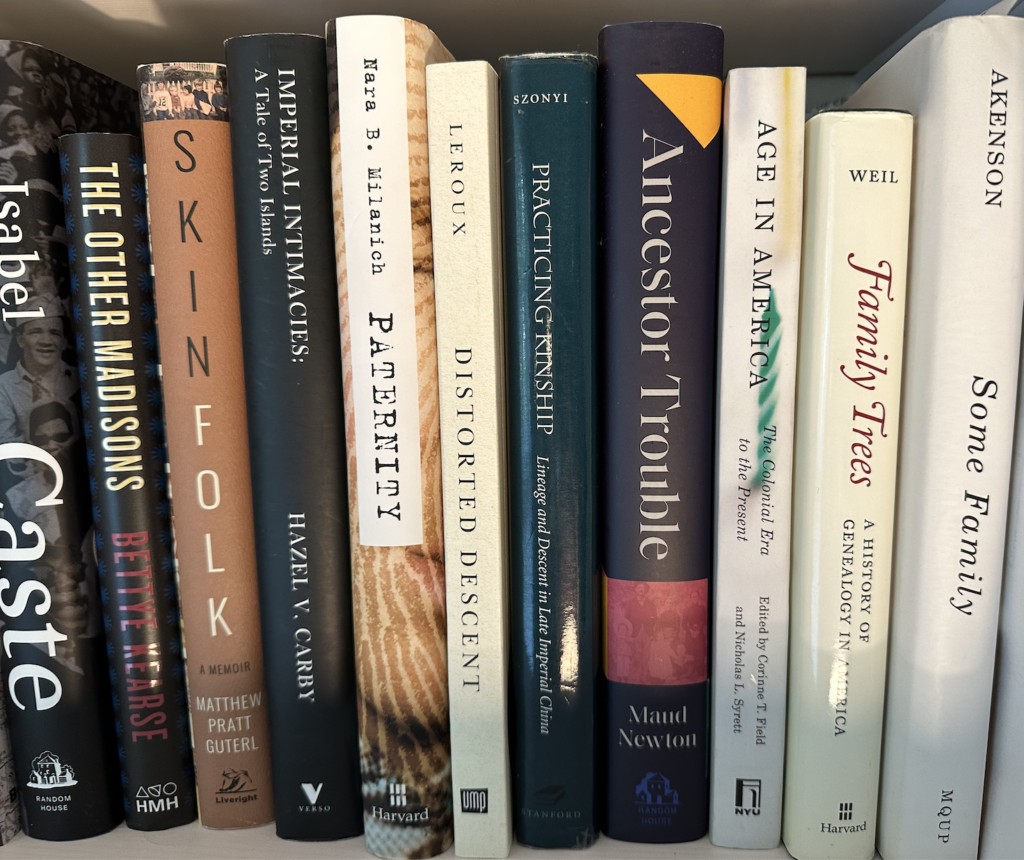“As a field family history has a history and my seminar begins there.” Back in 2017 I wrote about my graduate seminar in early modern Atlantic families; I also posted there the syllabus for that seminar and for the next time I taught it, in 2019.
I’m not teaching courses just now (still advising graduate students, which is its own wonderful teaching!), but I think it’s time to start posting more about the volume of incredible scholarship in family history that I’ve been reading– and what I’m looking forward to reading. This field has emerged and evolved in important ways, with critical perspectives and scholarship focused on empire and enslavement. The work I’ve been reading for the last couple of years emphasizes intimacy as well as the instrumental work of the law, imperial regulation of women’s sexuality and reproduction, and how the family interacted with or was a key agent of nascent capitalism.
My book bibliography is its own statement about family history since Julie Hardwick, Sarah Pearsall and I introduced an issue of the William and Mary Quarterly (from a conference we co-hosted at the University of Texas) focused on Atlantic families ten years ago. In that essay we called back to the “history of family history” (also echoed in my syllabi as you see above!) and the focus on demographics in the 1970s– and the now-it-seems-revealingly-odd emphasis on trying to sort out just when the nuclear family emerged as a dominant western familial form. And we pointed to the absence of family in the still-expanding field of Atlantic history. And we introduced the fresh research and scholarship in the journal / conference and what it portended. Some of what we assessed we can see ten years on very clearly. But there is so much more we didn’t see, and which is tremendously exciting and important.
Last weekend I was asked about how genealogists and others interested in family history can find a purchase on the subject within academic scholarship. My answer was to note just how robust this field has become and how important to explaining foundational features of the modern world. I thought it might be useful to start writing here a bit more about secondary reading to capture some of that. Of course I focus on (vast) early America, so I tend to read there most closely. So for the next months I’ll take a day a week on my IG to feature a work of family history. And I’ll start adding to a Zotero bibliography to share, based in the beginning on the syllabi I linked in the post above.

